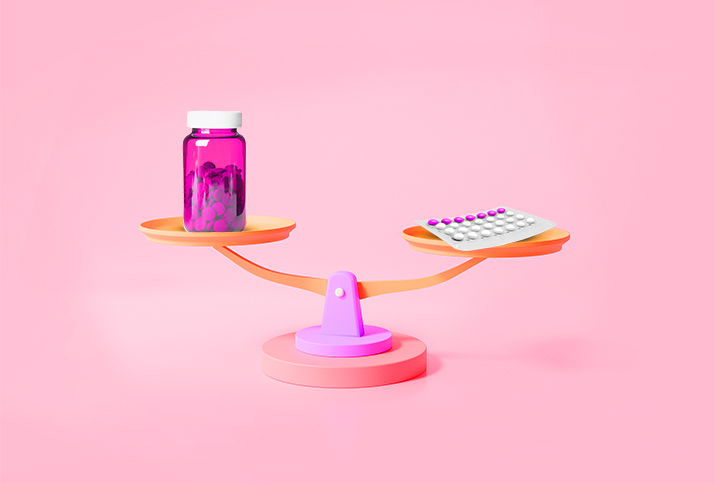Evidence Points to Possible Benefits of Ashwagandha for Libido

Loss of libido can be a troubling development for many men. It can impact relationships and possibly lead to feelings of stress, frustration, anxiety and depression. The good news is this issue is common and not usually a cause for concern.
Some natural remedies and methods claim to boost your sex drive, so unless you present with other alarming symptoms, there are options outside of medical intervention. In many cases, your libido can improve on its own with no obvious cause identified. But for those times when sexual desire doesn't improve, taking ashwagandha for libido might be beneficial.
What is ashwagandha?
Ashwagandha is an evergreen shrub native to Asia and Africa. Its roots and leaves have long been valued for their medicinal properties, with the main purported benefit being stress relief. It has been used by various cultures for centuries, but recently, the plant's popularity has soared.
This trend could be due to new studies suggesting various benefits or more people turning to natural remedies over pharmaceuticals to treat their ailments. Ashwagandha is available in powder or capsule form, with the latter being most popular.
What are some benefits of ashwagandha for libido?
The herb has been cited for its benefits, some of which may be related to libido, based on a variety of studies and reviews.
"Ashwagandha helps increase testosterone by increasing the blood levels of LH [luteinizing hormone], which is an upstream hormone that stimulates the production of testosterone. As testosterone increases, libido improves," said Darin Ingels, N.D., a member of the American Association of Naturopathic Physicians with practices in Connecticut, California and Manhattan in New York City.
Placebo-controlled trials have demonstrated that supplementation with ashwagandha could increase testosterone in men, according to Yelena Deshko, N.D., the founder of Timeless Health Clinic in Toronto.
A 2020 review published in the journal Advances in Nutrition revealed that three out of four examined studies showed a significant increase in testosterone levels in participants taking 600 to 675 milligrams (mg) of ashwagandha every day for eight to 12 weeks.
"It may help sexual performance by increasing testosterone, but ashwagandha also helps lower stress hormones that often interfere with libido," Ingels explained. "Ashwagandha also increases nitric oxide, which is a chemical that dilates our blood vessels and brings more blood supply to the sex organs."
Ashwagandha supplementation significantly reduced morning cortisol, according to one placebo-controlled study published in the journal Medicine. As elevated cortisol levels are associated with depression, obesity and lower sex drive, it's important to get the stress hormone under control. The study found regular ashwagandha intake increased testosterone levels in men over time, but there was not a significant change compared to the placebo, suggesting that more research is needed.
Another study reported increases in testosterone in healthy, overweight men ages 40 to 70 after eight weeks of taking ashwagandha extract. In addition, they experienced improvements in fatigue, vigor and sexual well-being. However, there was no significant difference between the group supplemented with ashwagandha and the placebo group.
Deshko said the exact molecular mechanisms of ashwagandha's effects on testosterone are yet to be determined.
"Some potential ways in which ashwagandha could benefit testosterone and libido function are through its antioxidative, antianxiety and reproductive hormone-balancing effects," she said. "While the trials for the testosterone-boosting effects of ashwagandha have been encouraging, so far, no conclusive studies exist showing direct benefit for libido specifically."
Other possible benefits of ashwagandha
"In addition to its testosterone- and fertility-enhancing effects, ashwagandha has garnered significant attention for its stress-relieving and antianxiety properties," Deshko said.
Several studies have demonstrated improvements in reducing stress and anxiety. One example is a 2019 study in the journal Cureus in which one group of participants was given 250 mg and 600 mg of ashwagandha daily while the other group received a placebo. Compared to the placebo group, participants who took ashwagandha saw a reduction in stress and anxiety as well as an improvement in sleep quality.
Ashwagandha extract can also improve muscle strength and stamina, as well as exercise endurance, Ingels said. It has been shown to help boost immune function and can improve memory and cognition. A 2017 study that lasted eight weeks found ashwagandha to be effective at enhancing immediate and general memory in people with mild cognitive impairment.
What else can improve libido?
While ashwagandha may be beneficial for some individuals, it might not be suitable for everyone. If you have a stomach ulcer or take thyroid medication, you should avoid taking it. In fact, if you have any underlying health problem, you should contact your doctor before taking any new supplement.
In addition to ashwagandha, there are other possible libido-enhancing alternatives. Deshko recommended trying maca root, arginine, Tribulus terrestris and Eurycoma longifolia (longjack). Additionally, Ingels made clear it's important to get nutrients such as citrulline, zinc, vitamin D and omega-3 fatty acids through diet and/or supplementation. Libido Boost vitamins can provide you with a steady stream of such nutrients to keep your sex drive in high gear. These Giddy Health supplements use only key ingredients that have been shown to help reduce stress, boost testosterone production and act as pro-erectile agents. Filled with ashwagandha, longjack and zinc, these capsules use microbead technology for a timed release throughout the day. In some cases, loss of libido can be a sign of an underlying medical issue, such as diabetes, high blood pressure or underactive thyroid. If you do not notice any improvement or have other symptoms that accompany your low libido, speak to a doctor.
Editor's note: These statements have not been evaluated by the Food and Drug Administration. Our medical experts advise that you consult with your primary healthcare provider before you begin using a supplement. This information is not intended to diagnose, treat, cure or prevent disease.


















